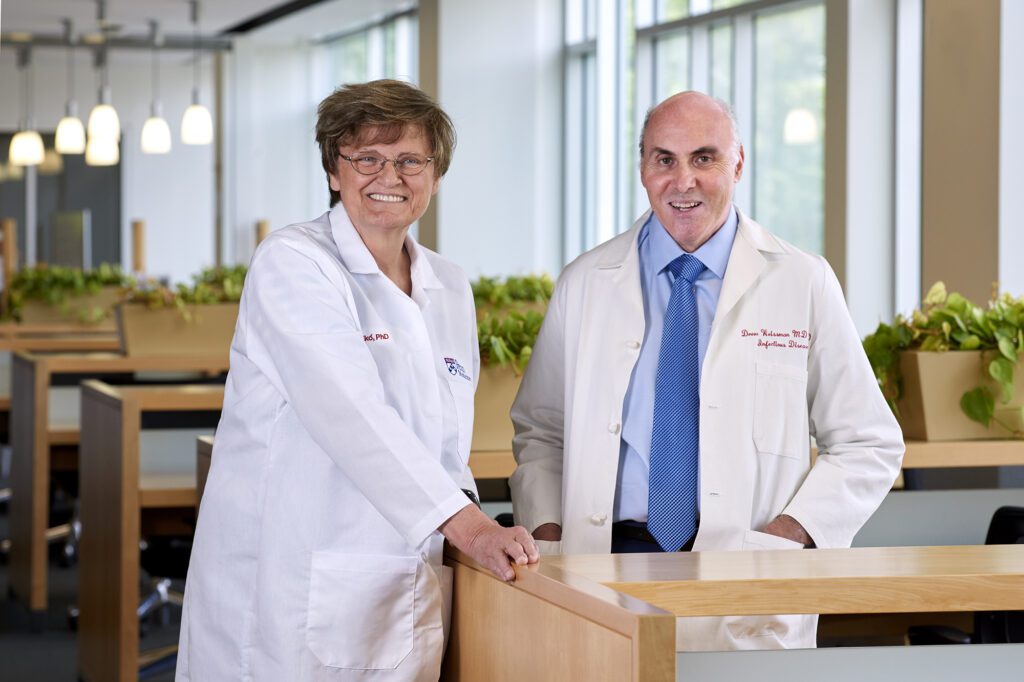- Web
- Feb 20, 2026
Nobel Prize awarded to the duo that paved the way for Covid vaccine
-

- Web Desk
- Oct 03, 2023

STOCKHOLM: Hungarian scientist Katalin Karikó and her US colleague Drew Weissman have won the ‘2023 Nobel Prize for Medicine’ for making the mRNA molecule discoveries. These discoveries paved the way for Covid-19 vaccines.
“The laureates contributed to the unprecedented rate of vaccine development during one of the greatest threats to human health in modern times,” the Swedish award-giving body’s statement for the duo said.
The prize, among the most prestigious in the scientific world, was selected by the Nobel Assembly of Sweden’s Karolinska Institute medical university and comes with 11 million Swedish crowns (about $1 million) to share between them.
The winners
Karikó is the former senior vice president and head of RNA protein replacement at German biotech firm BioNTech. She is also a professor at the University of Szeged in Hungary and an adjunct professor at the University of Pennsylvania (UPenn). Karikó’s history with UPenn is not a pleasant one. Karikó said that her failure to secure research grants led to UPenn demoting her from a full-time professor track in 1995. She also had to endure ridicule from her peers for pursuing RNA.
Weissman however has been enjoying the reward as an achievement of a “lifetime dream”. He recalled working intensely with Karikó for more than 20 years. “We couldn’t get people to notice RNA as something interesting,” Weissman said on Monday. “Pretty much everybody gave up on it.”
WHO recommends malaria vaccine that will be rolled out next year
In 2005, Karikó and Weissman developed so-called nucleoside base modifications, which stop the immune system from launching an inflammatory attack against lab-made mRNA, previously seen as a major hurdle against any therapeutic use of the technology.
In June this year, BioNTech said that about 1.5 billion people across the world had received its mRNA shot, co-developed with Pfizer. It was the most widely used shot in the West.
A trip down the memory lane
Having grown up in a village in a house without running water or a refrigerator, Karikó got a biochemistry doctorate in Szeged before she and her husband sold their Soviet-made Lada car, sewed some cash into their daughter’s teddy bear and went to the US on a one-way ticket.
The daughter, Susan Francia, became a US national rower and Olympic gold winner.
At UPenn, Karikó tried to turn mRNA into a treatment tool throughout the 1990s but struggled to win grants because work on DNA and gene therapy captured most of the scientific community’s attention at the time.
Weissman received his doctorate from Boston University in 1987 and joined UPenn in 1997.
The two have said they met and began chatting in 1998 while waiting for rationed photocopying machine time. “Maybe you have some more copy machines now,” Karikó said at UPenn on Monday. “I bragged about how I can do RNA, and Drew was interested in vaccines, and that is how our collaboration started.”
Sir Andrew Pollard, an immunology professor at Oxford University who pursued a different technology when co-developing the lesser-used Covid vaccine by AstraZeneca, said it was “absolutely right that the ground-breaking work” done by Karikó and Weissman should be recognised by the Nobel committee.




